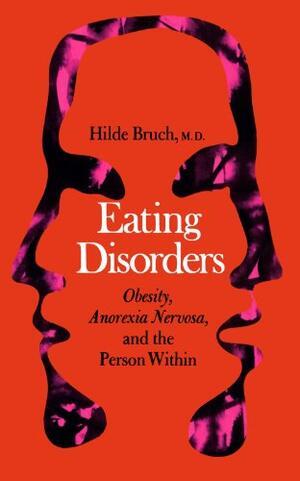Hilde Bruch and the Persistence of Eating Disorders
Clinical descriptions of eating disorders date back centuries, yet it took until the 1970s for the pioneering research of doctor, psychologist, and writer Hilde Bruch to bring the issue to public attention. Born in Germany in 1904, Bruch received her doctorate in medicine in 1929 and practiced in Germany until fleeing to London in 1933, and to New York soon thereafter. Once in the United States, Bruch studied psychiatry and began practicing psychoanalysis. Beginning in the early 1940s, she conducted groundbreaking research on childhood obesity and eating disorders, especially anorexia nervosa.
Bruch's research was published collectively in 1973 with the title Eating Disorders: Obesity, Anorexia Nervosa, and the Person Within. Although it's now somewhat outdated, her 1979 text about the causes and treatments of anorexia, The Golden Cage: The Enigma of Anorexia Nervosa, is still referenced today. I didn't know that there was research about eating disorders in teenagers as early as the 1940s, so discovering Bruch's work was surprising and enlightening.
I was struck by the fact that Bruch was asking the same questions more than 70 years ago that are still asked now – how and why are so many young women affected by eating disorders? What can we do to prevent them?
Today, research into eating disorders still lags behind in funding when compared to other psychiatric illnesses. This year, an estimated $251 million will be spent on schizophrenia-related research in the US, compared to around $32 million focusing on eating disorders. This funding gap is even more shocking when we consider that only .7 to .8 percent of Americans will suffer from schizophrenia in their lifetime, while eating disorders affect around 3 percent of Americans. Why don't eating disorders get more attention in the world of medical research?
Part of the answer could be that researchers pay more attention to diseases that disproportionately affect men than those that mainly affect women. Schizophrenia affects more men than women, whereas women are 2.5 times more likely than men to suffer from an eating disorder. Another possible answer may stem from the historic belief that eating disorders are simply the result of vanity, and not real diseases. But seeing eating disorders as merely attempts to conform to social norms regarding women's bodies misses the point. Today, as in Bruch's time, women face intense social pressure to be impossibly thin. The result of this pressure is the body insecurity that we see in younger and younger girls who are exposed to Barbie dolls, TV characters, and retouched magazine images that present unrealistic body standards. This intense self-criticism and body negativity from a young age can lead to unhealthy eating habits, and eventually eating disorders.
Despite Bruch's groundbreaking work, eating disorders in teenagers, predominantly girls, are not just an issue of the past. As a competitive runner, I am well aware of the danger and prevalence of eating disorders among teenage girls. I've become aware of multiple teammates and competitors who have struggled with eating disorders over their years of running, some even requiring hospitalization.
My teammates' and my own vulnerability to eating disorders terrifies me. One of the many reasons I love running is that it makes me feel connected to my body; when I run, I am aware of the full effort that my body can give. However, this dependence on my body to do an activity that I love has made me incredibly conscious and critical of both my body and diet. There isn't just a "perfect" woman, but there's also an image of the idealized female runner – she's somehow skinnier than the models in teen magazines but also visibly muscular; she has a thigh gap wider than her actual thighs and the flattest abs around. My eyes are open to the pressures that teenage girls and female runners face to look like these idealized women, but I still worry about the risk that eating disorders pose to me and my teammates. I fear that awareness isn't enough to erase this threat.
Hilde Bruch's research laid the groundwork for treating eating disorders not as conscious dieting decisions, but as serious medical conditions. Still, the underfunding of eating disorder research decades after Bruch's work, especially when compared with other psychiatric disorders, reveals the continued need for research and more widespread recognition of eating disorders as real illnesses. I do my best to honor Bruch's legacy by analyzing the messages that are marketed to me, looking out for my friends and teammates who might be struggling with their eating habits, and not criticizing my, or anyone else's, body. I know that these actions are minimal, but they're a step in the right direction toward breaking the power of socially constructed norms about women's bodies.
This piece was written as part of JWA’s Rising Voices Fellowship.








struggling with the remnants of chronic anorexia that I contracted at age 54, I had to laugh out loud at your explicit picture of a "runner"'s body. More openness about the mechanism of anorexia is sorely needed. Now that visuals in advertising have got us by the short and curlies, describing what we see to each other is good for us all